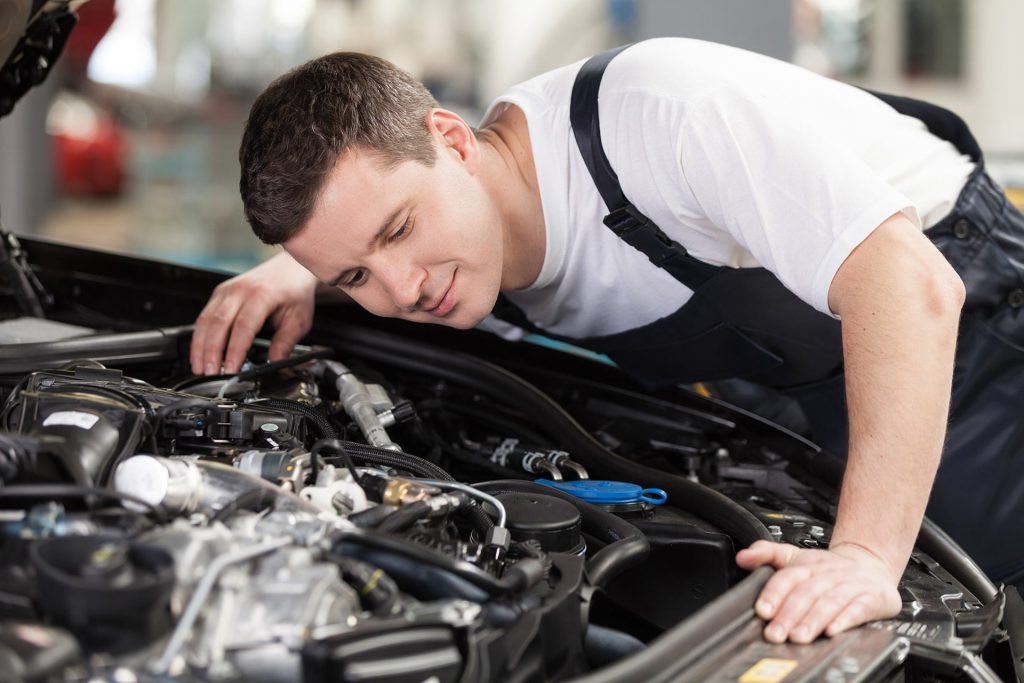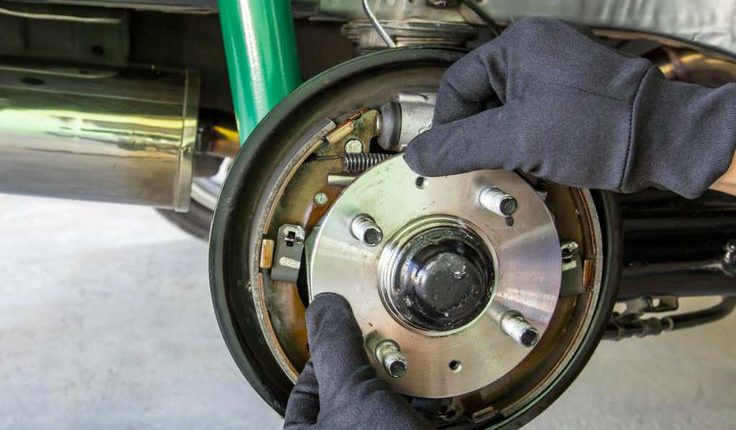Your car may sound like an airplane due to a loud exhaust system or worn bearings. Possible causes include exhaust leaks, faulty wheel bearings, or issues with the drivetrain.
Experiencing an aircraft-like noise from your car can be startling and should prompt immediate attention. The sound often points to components in the vehicle that need repair or replacement. It could signify something as simple as a hole in the muffler, which amplifies engine noise, or as serious as failing wheel bearings, which cause a roaring noise escalating with speed.
The drivetrain, which encompasses the transmission and differential, may also produce sounds reminiscent of an aeroplane if it’s not functioning correctly. Addressing this noise not only ensures a quieter ride but also helps maintain the mechanical integrity of your vehicle. Regular checks and maintenance are crucial in preventing such issues and ensuring your car runs smoothly and quietly.

Credit: carfromjapan.com
Identifying The Roar: Symptoms And Diagnostics
Does your car sound like it’s ready for takeoff? A car roaring like an airplane can signal underlying problems. Let’s explore the symptoms and how to pinpoint the issues causing this loud nuisance.
Recognizing The Unusual Car Sounds
Distinctive noises from your car can be the first sign of trouble. Listen for these sounds:
- Whirring during acceleration: Often a sign of exhaust problems.
- Humming at high speeds: Could indicate tire issues.
- Roaring that grows with speed: Might suggest transmission or gear problems.
Any unfamiliar sounds should prompt a thorough check-up.
Tools And Techniques For Diagnosing The Noise
Diagnostics call for specific tools and strategies. Use these to find the noise source:
| Tool/Technique | Use |
|---|---|
| Stethoscope | Pinpoints engine or bearing noises. |
| Pressure Gauge | Checks exhaust back pressure. |
| Diagnostic Scanner | Reads error codes from the car’s computer. |
A mechanic uses these tools effectively. It is wise to consult a professional for an accurate diagnosis.

Credit: carfromjapan.com
Common Culprits: What Could Be Wrong
Is your car suddenly sounding more like a jet than a gentle ride? Many drivers have faced this noisy problem. The source of these sounds can often be hard to pinpoint. But, a few common culprits are responsible for transforming your quiet commute into an airplane-like experience. Let’s explore what could be wrong.
Worn Wheel Bearings And Their Effects
When wheel bearings wear out, they can cause a droning noise. This is similar to an airplane’s. These bearings let your car’s wheels spin freely. But over time, they can deteriorate.
Here are signs that your bearings might be failing:
- A rumbling or growling noise that increases with speed
- A feeling of looseness or steering wheel vibration
- A change in noise when turning or changing lanes
Mechanics can replace these bearings. This will restore quiet to your ride.
Exhaust System Leaks And Increased Engine Noise
A leak in the exhaust system can make your engine roar louder than usual. Holes or cracks can lead to more noise. They can also let toxic fumes enter your car.
Keep an eye out for these exhaust leak indicators:
- Excessive engine noise, especially when accelerating
- A hissing or popping sound
- Lower fuel efficiency
Fixing exhaust leaks early is crucial for safety and noise reduction.
The Impact Of Tire Conditions And Alignment
Bad tires or misaligned wheels can also cause airplane-like noises. Uneven tire wear can create a humming sound on the road. Poor alignment leads to uneven driving and noise.
Watch for these tire and alignment red flags:
- A humming or drone noise from tires
- Rapid tire wear
- Car pulling to one side
Maintaining tires and alignment is key. It helps keep your car quiet and safe.
Under The Hood: Engine-related Noises

Credit: motor.onehowto.com
Aerodynamics And Exterior Factors
Your car sounds like a whir of an airplane? That could be due to its aerodynamics and external fixtures. The sleek design of your automobile isn’t just for looks. It’s meant to slice through the air with minimal resistance. But sometimes, added elements or wear and tear can alter this smooth passage. This can generate noise, echoing the bustling sounds of an aircraft.
Loose Body Panels And Wind Resistance
Loose body panels are like flapping wings on your car’s exterior. They can vibrate when the air rushes past, causing that airplane-like roar. The culprit might be as simple as a loose bumper or a detached trim. On the highway, these components can act like mini sails, catching the wind and leading to noise.
- Check for loose screws or fasteners on your panels.
- Look for gaps where the panels meet.
- Secure any flappy parts to reduce noise.
Roof Racks And Accessories That Change Airflow
Ever noticed the whistling noise when a loaded roof rack is up top? Roof racks, even when empty, can drastically change airflow. This can lead to noise that mimics a propeller plane. The same goes for other accessories that alter your car’s original aerodynamic profile.
| Accessory | Noise Impact |
|---|---|
| Roof Racks | Whistling or roaring |
| Spoilers | Altering wind trajectory |
| Bike Racks | Increase drag and noise |
Smooth lines reduce noise. Look at removing or replacing accessories. Streamlined designs can help regain that quiet ride. Always opt for accessories that are designed for your vehicle model. These typically offer the least resistance and the least noise.
Navigating Solutions: From Quick Fixes To Professional Help
Preventative Measures And Maintenance Tips
Is your car making a loud noise like an airplane? This could be a call for some attention to its maintenance. Cars need regular check-ups and specific care to keep them running smoothly. Knowing the right preventative measures can help you avoid unwanted noises and potential breakdowns. Here’s what you can do to maintain your vehicle and ensure it runs quietly and efficiently.
Scheduling Regular Vehicle Check-ups
Think of these check-ups as routine doctor visits but for your car. Regular diagnostics can catch issues before they escalate. Use a trusted mechanic for consistent evaluations.
- Oil Changes: Stick to your vehicle’s recommended schedule.
- Brake Inspection: Listen for squeaking or grinding as signs for checks.
- Engine Examination: A smooth-running engine means a quieter car.
- Transmission Check: Prevent gear slipping or rough shifts.
Long-term Care For Tires And Wheels
Tires are your car’s shoes. Just like how comfortable shoes make your walk easier, well-maintained tires make your drive smoother and quieter.
| Action | Benefit |
|---|---|
| Regular Pressure Checks | Ensures even wear and optimal fuel efficiency. |
| Rotation and Balancing | Prevents vibrations and extends tire life. |
| Alignment | Reduces strain on vehicle’s suspension. |
| Inspection for Wear and Tear | Catches potential issues early, like noisy wheel bearings. |
Frequently Asked Questions For Why Does My Car Sound Like An Airplane
Why Does My Car Sound Louder Than Usual?
Increased noise from a car can be due to a leak in the exhaust system. It could also be because of wear and tear on the muffler or damage to the catalytic converter. It’s best to have a mechanic inspect it.
Can Wheel Bearings Cause Airplane-like Noise?
Yes, worn wheel bearings can create a loud roaring or rumbling noise, similar to an airplane. This sound will typically get louder with vehicle speed. Replacing wheel bearings is crucial for safety and noise reduction.
What Are Signs Of A Failing Transmission?
Typical signs include unusual noises like whining or clunking, delayed or missed shifts, and a burning smell. If your car sounds like an airplane, check for transmission fluid leaks and get it inspected promptly.
How Does Tire Pressure Affect Road Noises?
Incorrect tire pressure can amplify road noises. Over-inflated tires make a harder contact with the road, while under-inflated tires can cause a wobbly, rumbling sound. Maintain the recommended tire pressure for a quieter ride.
Conclusion
Unusual car noises can raise alarms, but identifying the cause is key. Whether it’s a wheel bearing issue, exhaust system problems, or something else entirely, addressing these sounds quickly can prevent further complications. Trust your vehicle to a professional for a thorough check-up and enjoy a quieter, smoother ride.
